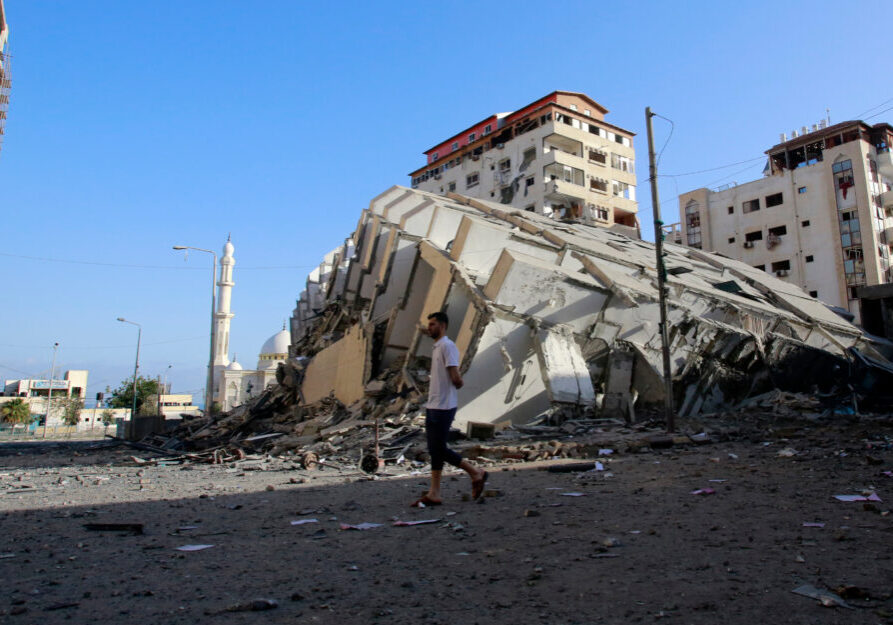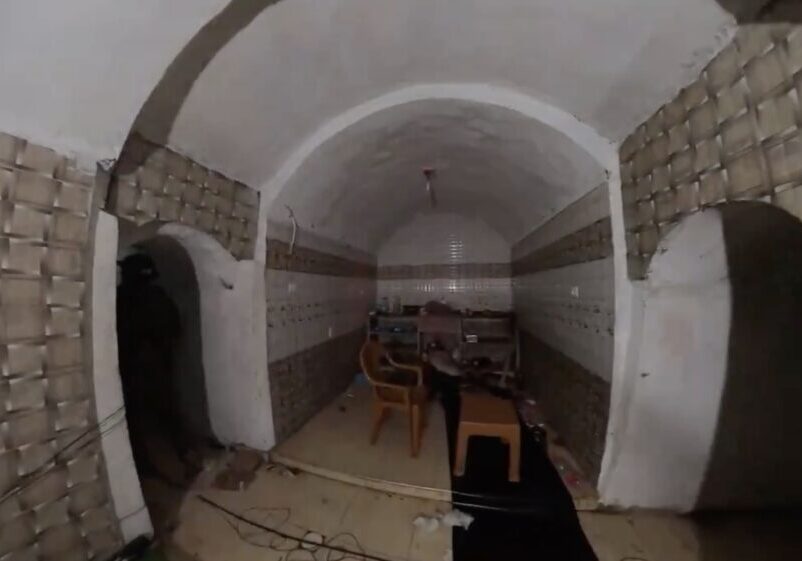Australia/Israel Review
View from a Height
Apr 1, 2005 | Tzvi Fleischer
An interview with Israel’s President Moshe Katsav
By Ted Lapkin & Tzvi Fleischer
This interview occurred at the President’s Melbourne hotel on March 4, the fourth day of the President’s week long trip to Australia.
 |
Israel’s President Katsav |
Q: Mr President, you were born in Iran and speak Farsi. Does that give you any particular insight into the culture of the Islamic Republic of Iran? And, in particular, how do you judge the threat posed by the Iranian nuclear program?
MK: Iran is a country that is extremely rich in energy resources. They have no real need to develop nuclear power resources. The only reason for them to have a nuclear program is to develop weapons. The combination of Iran’s totalitarian regime and its record of support for terrorism makes the prospect of an Islamic Republic armed with nuclear missiles something that the world must act to prevent. Teheran has been aiding groups like Hezbollah and over 70% of Palestinian terrorist attacks have been funded and organised by Iranian intelligence agents working with the Palestinians. Can you imagine what would happen if a nuclear armed Iran decided to provide unconventional weapons to the same terrorist groups that it has been supporting all these years? But I am doubtful that the European diplomatic initiative to convince Iran to desist from its nuclear program will have any effect. I don’t think that Israeli military action will be required to solve this problem. The appropriate forum to deal with it is the UN Security Council.
Q: To follow up the Iranian question, you mentioned that one of the dangers with Teheran comes from the fact that it is a non-democratic country. But we are witnessing dramatic events in Lebanon over the last few days. We have also seen relatively fair democratic elections held by the Palestinian Authority to choose Arafat’s successor. Do you believe that there is a wave of democratisation coursing through the Middle East; and should Israel be looking forward to this? Or do you believe that democracy is a long way off for Israel’s Arab neighbours?
MK: No, the last developments are very positive and very promising, in Iraq, Lebanon and the Palestinian Authority. Even in Egypt the signs are positive. I cannot be sure what will happen in the next decade, it is not forever. You know just one year after the peace agreement between Israel and Egypt, the president of Egypt was assassinated. And while Iran was friendly towards Israel under the Shah, it became the enemy of Israel after its Islamic Revolution. Such a thing could not happen in a democratic world. But it happened in the non-democratic Middle East. I cannot say that now the process is completely democratic and everything is OK. It is the beginning of democratic system taking root in our region. It is too early to estimate, but the trend is very positive. Yet it is the beginning and we should not be in a state of euphoria that now it is the revolution, a democratic revolution in the Arab world. It will take time and we need time to really see what will happen. But perhaps it is the beginning of the beginning.
Q: And just to follow up on this issue of democratisation. There has been a lot of debate over the question whether this outbreak of democracy was caused by the American intervention in Iraq and the resultant free elections that took place on 30 January. Do you think that the overthrow of Saddam Hussein set this process in motion?
MK: No doubt. The American determination stands behind this positive trend and positive direction. But it is just a beginning and we need time. But of course I have no doubt that the American position and determination brought about this positive trend in the Arab world.
Q: Mr. President, you met Prime Minister John Howard the other day. Can you tell us a bit about what you discussed? I am particularly interested if there was talk about a free trade agreement between Israel and Australia?
MK: Prime Minister John Howard is really a very open fellow, a charming personality. He is very friendly, and we talked and discussed a variety of matters: the Arab-Israeli conflict as well as global issues. As a matter of fact, we had two meetings. One was a closed meeting with myself, the Prime Minister and other ambassadors, and the second meeting was over lunch with friends, where we continued the discussion. We discussed economic issues, and I broached the subject of a free trade agreement. He was generally very positive, but I cannot say he committed himself.
Q: Mr President, if I could follow up on the economic front. You have lunch today with Victorian Premier Bracks. Could you comment about the deal the Victorian government has just signed with Israel to promote bio-technology?
MK: Well, as you know, both Israel and Australia have very robust hi-technology sectors. I met the Finance Minister of Victoria in Israel a few months ago and I know the technology agreement is very important to both sides. The focus on bio-tech and hi-tech will be the most important economic issue of the next years. And cooperation brings benefit to both sides. Look at the geographical position of Australia and Israel. We are close to Europe and could be a station for helping Australian goods gain entry to Europe. And Australia could perform the same service for Israel [in this region].
Q: You had very good discussions with the prime minister, but I hope you would also comment on the talks you had with the Leader of the Opposition, Kim Beazley, and the Shadow Foreign Minister, Keven Rudd?
MK: I had very good talks with the leaders of the Labor Party. Israel has strong relationships and good friends on both sides of the aisle in Australian politics. With regard to Israel, they had the same attitude as the government. They were very warm and understanding, and it was a very open discussion. I was very impressed by the Leader of the Opposition. I could not see any difference between the government and the opposition with regard to the Israeli/Palestinian conflict, with regard to Israel.
Q: May I draw you briefly to a discussion on New Zealand? You said that you regretted last year’s incident, but the New Zealand Prime Minister has arguably used you as a political pawn by saying that you were not welcome in that country, despite the fact that you never had any intention of going there in the first place. How do you feel about that?
MK: I don’t know why Prime Minister Helen Clark raised the issue of my visit to New Zealand. I have the greatest respect towards the government of New Zealand, and I don’t want to argue with her through the papers and the media. That wouldn’t be right. I said that I was sorry about what happened. But a visit to New Zealand was never on the agenda. My Australian state visit was prepared more than a year ago, and I never saw a recommendation by our Foreign Ministry that it might be a good idea to visit New Zealand as well. This issue was never raised.
Q: If I could shift to the question of the withdrawal from Gaza, recent reports have shown that a very small percentage of Gaza’s Jewish settler population have accepted the voluntary compensation package. Do you think that there will be a lot of opposition when the withdrawal takes place? And how do you think that should be handled?
MK: There will be strong opposition. Opponents of the disengagement have the right to protest. And they have the right, if they can, to vote out a government. We are a democracy. But at the end of the day, the decision is in the hands of the government. Everyone must respect what the Knesset ultimately decides, including the settlers.
Q: Is there a genuine fear that this withdrawal, unlike the one at Yamit [during Israel’s withdrawal from Sinai in 1982] could spill over into violence?
MK: We hope this will not happen. I believe that over 90% of the settler population will respect the rules and values of democracy. They will protest and demonstrate, and they have the right to do so. But they will not cross the red line into violence. Perhaps there will be a few on the fringe who will cross that line, but we will deal with them appropriately. I believe that the overwhelming majority of the settlers will respect the Knesset’s decision.
Q: We are all aware of the tide of antisemitism in Europe. You have just visited France recently, and of course, you were the keynote speaker at the 60th anniversary commemoration of the Auschwitz liberation. Do you have any comments? How do you see this issue, and do you think it is being adequately combated by the Europeans?
MK: During the last few years there has been a rise in antisemitism, especially in Europe. This is the result of a combination of radical Muslim conservatives who oppose Israeli policy towards the Arab world, and extremists from the Left. There are almost 20 million Muslims living in Europe, and they have become a political and economic power. But I believe that the majority of European Muslims are against antisemitism. A minority of them co-operate with the extremists, and this must be combated… I have met with many European leaders and they are very concerned about this problem. I hope that they will act with determination. And there are encouraging signs. A few months ago there was a conference on antisemitism in Berlin that was sponsored by the German Chancellor and Foreign Minister Fischer. I called on European leaders to implement four strategies against antisemitism: legislation, law enforcement, education, and moral pressure from political, religious and social leaders. Forty-five kings, presidents and prime ministers came to this event, so I am hopeful that the issue of antisemitism in Europe can be dealt with effectively.
Q: Mr. President, you stressed earlier that this visit is about Australia. You have been here now a few days, and you have visited Canberra, Sydney and Melbourne. Can you tell us about your impressions of the Australian Jewish community?
MK: I have visited many countries, and in each one a visit to the local Jewish community is always an essential part of my itinerary. In some ways this is a difficult time for world Jewry. On the one hand, things are very good. We have democratisation, open borders, the internet. But these silver linings also have clouds. And the biggest one is the temptation offered by an open society to assimilate. The Australian Jewish community is facing this in a very smart way. They have increased Jewish education, and as a result assimilation in Australia is one of the lowest rates in the world. I think that the Australian Jewish community should serve as an example to other communities throughout the world of what can be done with a bit of willpower and sechel [intelligence].
![]()
Tags: Iraq






